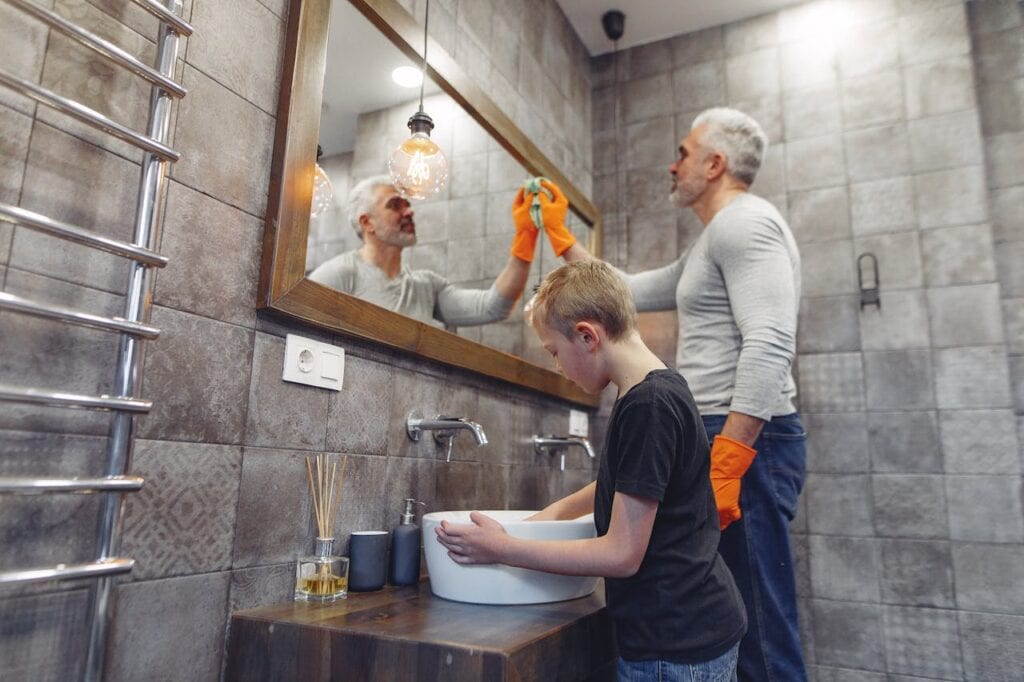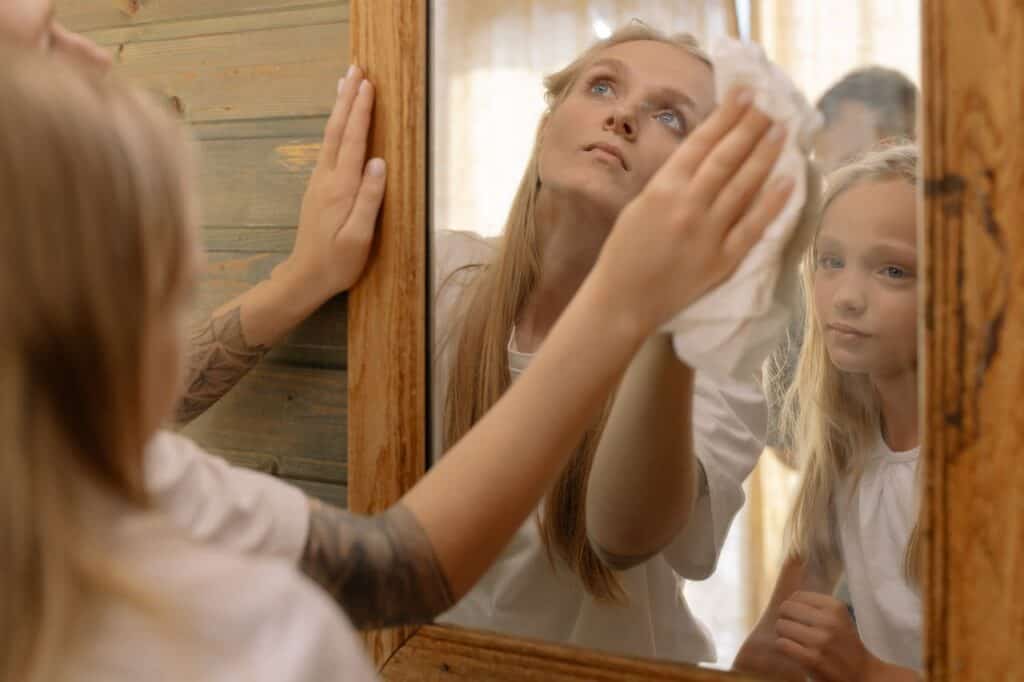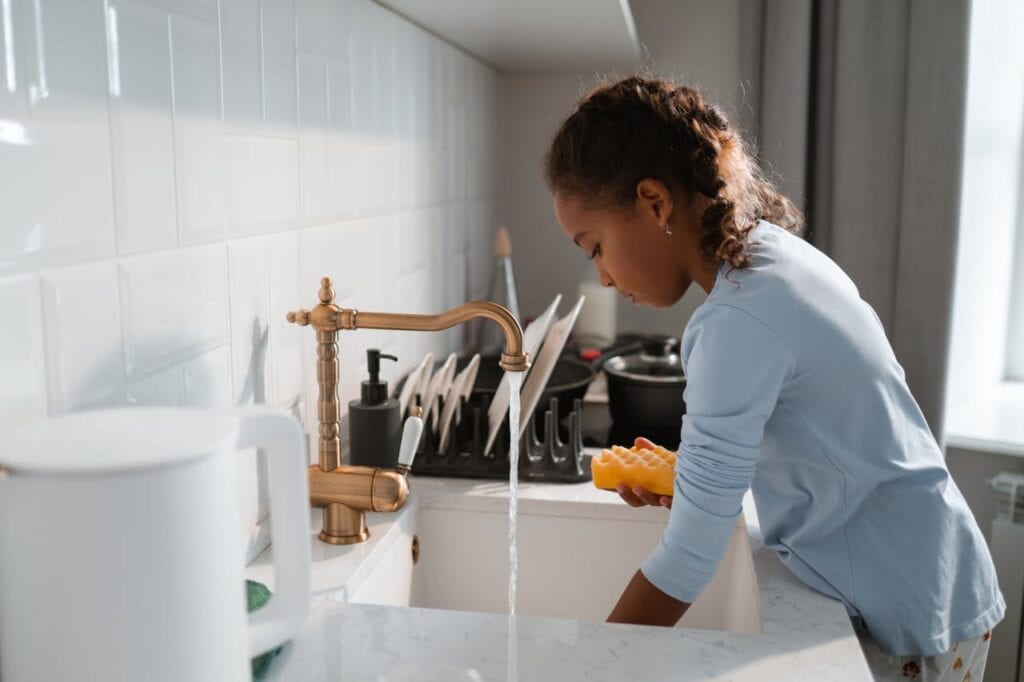Teaching Responsibility with Chores (Without the Power Struggle)
Chores don’t have to be a daily battlefield. When approached thoughtfully, household tasks teach valuable life skills while contributing to family functioning. The key is matching expectations to development, making tasks meaningful rather than arbitrary, and building systems that work with your child’s natural motivations instead of against them.
Start with Age-Appropriate Expectations

Two-year-olds can put toys in bins; six-year-olds can set tables; ten-year-olds can do their own laundry with guidance. Match tasks to developmental capabilities rather than pushing beyond readiness. Success builds confidence and willingness to take on more responsibility. Overwhelming children with inappropriate expectations creates resistance and feelings of failure.
Focus on Contribution, Not Perfection

The goal is building responsibility habits, not achieving adult-level results. Crooked beds and missed spots are normal learning experiences. Praise effort and improvement rather than criticizing imperfect execution. Children who feel their contributions are valued develop stronger intrinsic motivation than those constantly corrected for minor imperfections.
Connect Chores to Family Functioning

Explain how their tasks help the whole family: “When you feed the dog, you’re taking care of our pet” or “Setting the table helps everyone eat together.” This creates meaning beyond arbitrary work assignments. Children understand their importance to family operations and develop pride in contributing rather than feeling burdened by meaningless tasks.
Create Consistent Routines

Link chores to daily routines: toys away before dinner, beds made before breakfast, backpacks packed after homework. Routines reduce decision fatigue and arguments about when tasks should happen. Consistency helps chores become automatic habits rather than daily negotiations that exhaust both parents and children.
Use Natural Consequences Thoughtfully

Dirty clothes not in hamper don’t get washed. Toys left out get put away by parents and become temporarily unavailable. Natural consequences teach responsibility without punishment battles. The key is following through calmly and consistently without lecturing or saying “I told you so” when consequences occur.
Rotate Responsibilities to Prevent Boredom

Switch chores weekly or monthly so children experience different aspects of household management. This prevents resentment about always doing the same task and builds diverse life skills. Rotation also helps identify which chores each child handles well or particularly dislikes, allowing for more strategic long-term assignments.
Work Alongside Them Initially

Do chores together until children master new tasks. This provides teaching opportunities and makes work feel collaborative rather than isolating. Gradually reduce your involvement as competence grows. Working together also creates opportunities for conversation and bonding while accomplishing necessary household tasks effectively.
Recognize Different Learning Styles

Some children need step-by-step lists; others learn by watching demonstrations. Visual learners benefit from picture charts; kinesthetic learners need hands-on practice. Adjust your teaching approach to match how your child learns best. Understanding learning styles reduces frustration and accelerates skill development for both parents and children.
Separate Chores from Allowance

Consider giving allowance based on family membership rather than chore completion. This teaches that family members contribute because they’re part of the team, not for payment. Paid chores can become transactional: “I didn’t get paid, so I won’t do it.” Separate systems maintain intrinsic motivation for family contribution.
Celebrate Systems That Work

When chores happen smoothly, acknowledge the success: “Our morning routine worked great today!” This reinforces positive patterns and builds momentum for continued cooperation. Celebration doesn’t require big rewards—simple recognition of effective teamwork encourages children to maintain responsible behaviors because they feel appreciated and valued.





